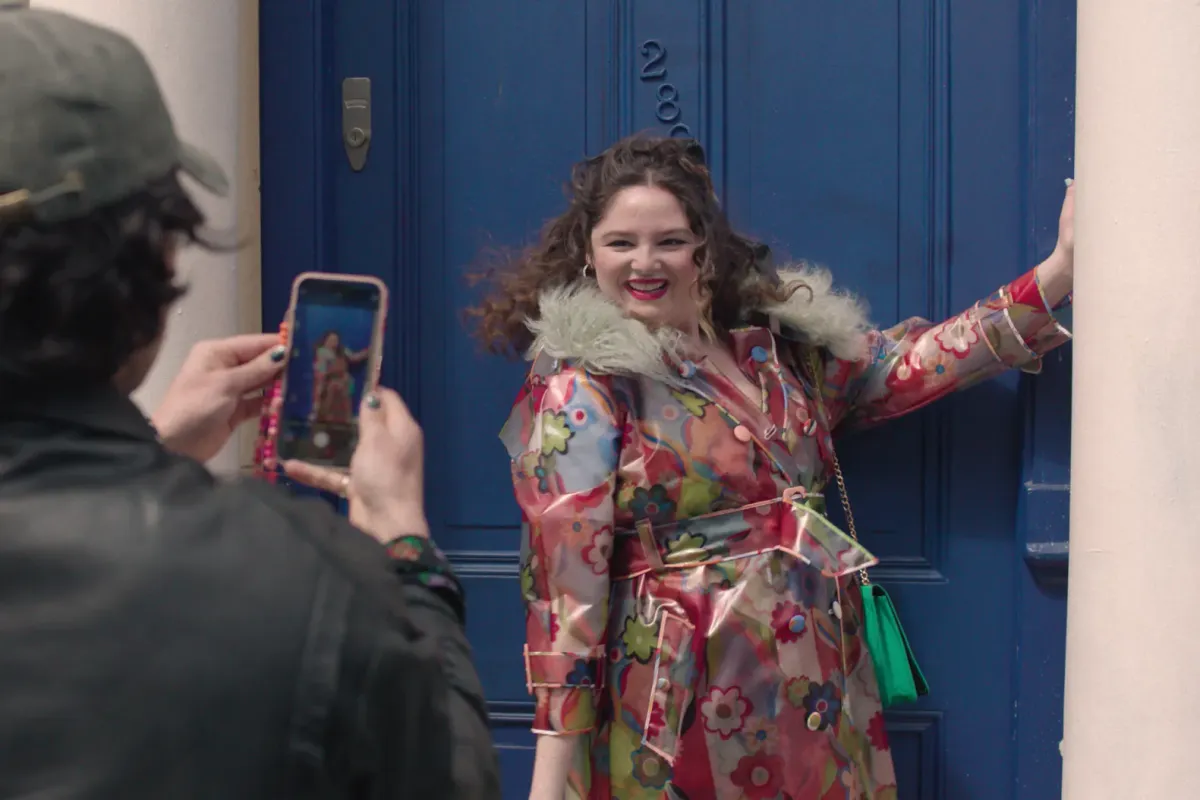Is Netflix's “Too Much”...too much?
Santiago explores why the new show from Lena Dunham may have overstayed its welcome.

A girl breaks up with her longtime boyfriend. The ex moves on with a beautiful influencer. The girl gets obsessed with their relationship. The girl crashes their place. And, after all that stress, the girl moves to London.
That’s how Too Much, Lena Dunham’s new show starts. The girl in question is Jess, interpreted by the fascinating and charismatic Megan Statler, who, in typical rom-com fashion, falls for a goth indie musician, Felix (Will Sharpe), while in British soil. But, aside from conventional narrative tropes, particularly at the beginning, that’s as straightforward as the show gets.
Girls, Dunham’s trademark HBO show, was the talk of the town, the “voice of a generation”. This show, focusing on messed-up relationship dynamics instead of on four women, is not trying to be that by any means. It mainly drives on two highways: one focused on making fun of London and British culture (awkwardly and on the surface, akin to the controversial guilty pleasure Emily in Paris) and the other on examining baggage in all its shapes and forms.
The latter is way more interesting, especially when focusing on characters as flawed as Jess, Felix and the supporting figures in their lives, like the gentle abuser Zev (Michael Zegen) and a colourful ensemble of Felix’s past romances, including the memorable Linnea (Adwoa Aboah) and of course, the exceptional Polly (Adèle Exarchopoulos), whose raw honesty and confidence stand out and steal the show whenever she’s on screen.
Which brings my point across with flying colours. Too Much is too long. However, it works better seen individually than the sum of its parts. Felix and Jess’ intimate scenes for instance, sometimes tender, other times gut-wrenching, do their job wonderfully. The bottle episodes, one focusing on Jess and Zev’s crumbling relationship and the other on Felix’s sad and lonely upbringing, are also emotionally effective.
Jess can be irritating, but when she’s relatable, you can’t help but root for her, and that’s all Statler, who proved her charisma on Hacks, this time with more mixed results. When she breaks down, it’s sympathetic. But when she throws zingers in weird situations it’s…well, a lot.
However, Felix’s subdued demeanor, and his world, are much more compelling than Jess’ sugarcoated, over-the-top reality. Particularly in this context, when the job market is quite hard and the cost of living crisis is as real as portrayed in his situation, his scenes have a lot of teeth to sink into. It’s inevitable to understand Felix when he goes for support and explains how he can’t get a normal 9-to-5 to pay his bills, or when he’s breaking down and exposing himself in bed, with friends and lovers alike. Sharpe’s performance also aids the situation gracefully, playing subtext wonderfully.
In another world, with a more concise narrative and without a lukewarm and out-of-place, rushed ending, Too Much could’ve been great. But I’m grateful for when the show made its effort to dig deep into its complex characters and not fall into its absurd tendencies.





